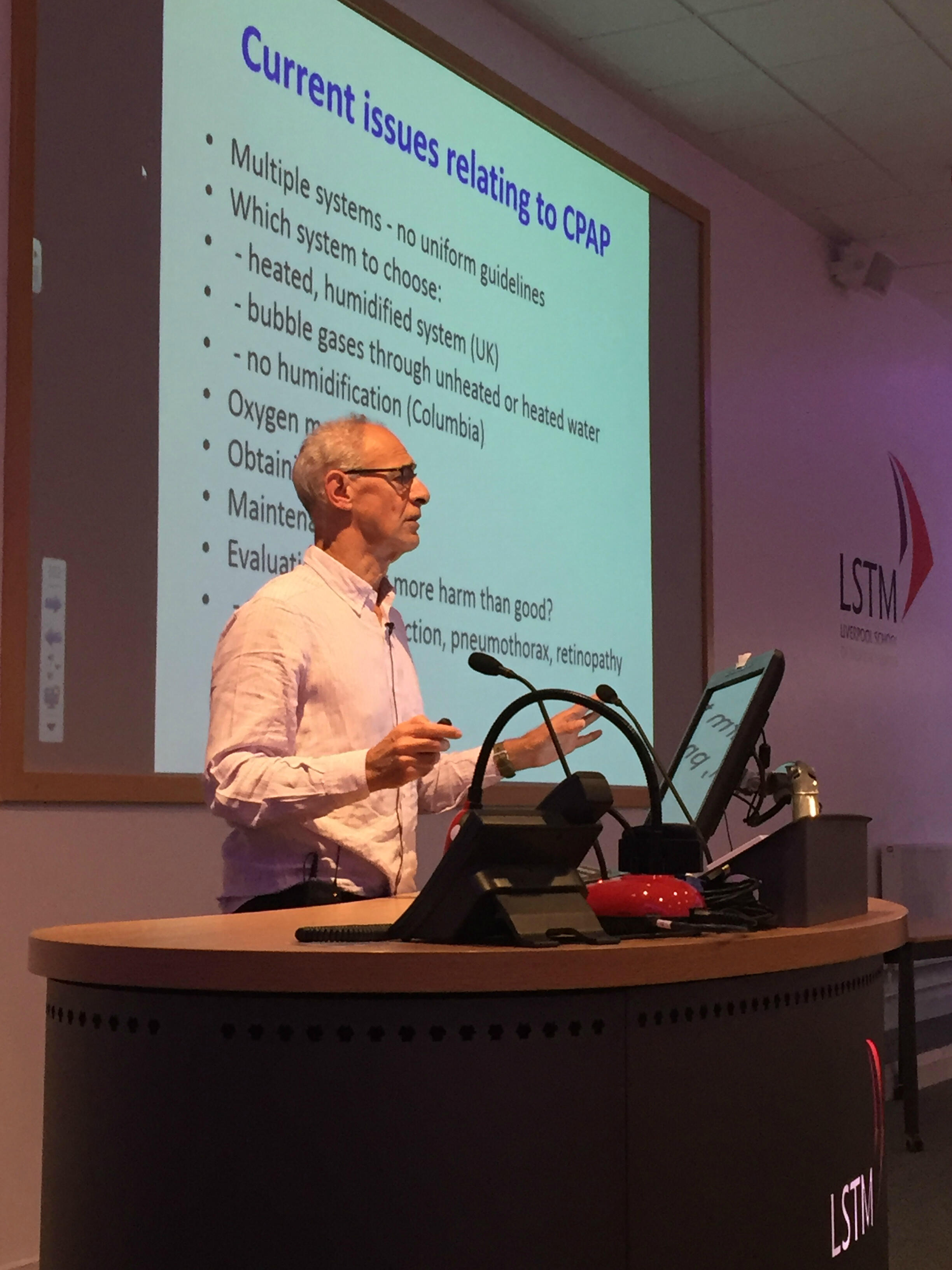
LSTM’s Seminar Series continued this week with a presentation by Dr Tom Lissauer, an Honorary Consultant Neonatologist at Imperial College Healthcare Trust. His talk entitled Priorities in Global Neonatal Health was introduced by LSTM’s Professor Stephen Allen.
Dr Lissauer began by outlining the main issues in global health including under 5 mortality, neonatal mortality and maternal mortality. While pointing out that large improvements have been made, with deaths in the under 5s dropping from 12.7 million in 1990 to 5.9 million in 2015 and neonatal deaths falling from 4.4 million to 2.7 million over the same period, there is still a lot of effort needed to ensure that the targets set by the Sustainable Development Goals are not missed.
He explained that the biggest risk factor in relation to a newborn baby’s survival remains where they are born, with those born in low income countries being most as risk. In terms of numbers, India has the most neonatal deaths given their massive population, but in terms of mortality rates, countries in Africa remain the highest, with Sierra Leonne having very high mortality rates even before the recent Ebola outbreak. Most deaths occur on a baby’s first day of life, and a total of 75% of neonatal deaths within the first week of life. Babies die of a relatively small number of causes, which are the same globally with prematurity/low birth weight and birth asphyxia being the major factors.
Dr Lissauer talked about the Imperial – Rwanda Health Partnership which began as a request from local doctors that he and colleagues deliver training. He explained that Rwanda is a relatively small country in East Africa, with a high birth rate and very low numbers of health professionals. The country is very poor, and is a priority country for funding from the UK’s Department of International Development, and while it has made significant progress in reducing neonatal death, reaching the target set for the Millennium Development Goals in 2015, it still has a long way to go.
After talking through the ETAT + course (Emergency Triage and Treatment plus admission) that the partnership had set up and the benefits of delivering it to final year medical students before they are busy on the wards, and the lessons that had been learned from that experience, he pointed out that many benefits of the partnership have been by products like linking Rwandan paediatricians to others in East Africa and raising the profile of their professional association.
Dr Lissauer talked about the introduction of a CPAP machine (continuous positive airway pressure), which had been adapted from use in the UK. The simple system provides respiratory care for newborns to support their breathing. With a relatively small grant of £30K they were able to see a reduction in mortality, although the system was not without its problems, requiring more care from the medical staff and coming with potential risks of nasal trauma and other complications. However, since its initial introduction, a number of other projects have brought in differing CPAP machines which means makes the development of universal guidelines difficult as each operates in different way and requires different levels of maintenance. He also explained that staff have tried in some cases to set up their own machines; however, a problem is using 100% oxygen which also comes with a risk of retinopathy and damage to other organs in preterm babies.
Dr Lissauer concluded by saying that his experiences have taught him that, whilst not always easy, while it is possible to carry out highly effective training programmes. He said that it is important to take into account staff morale as well as a numbers of staff, and that local leadership and maintaining engagement over the longer term are key. While it is highly encouraging that neonatal mortality has decreased, Tom was keen to point out that there is still a way to go.
A recording of the seminar can be found here: